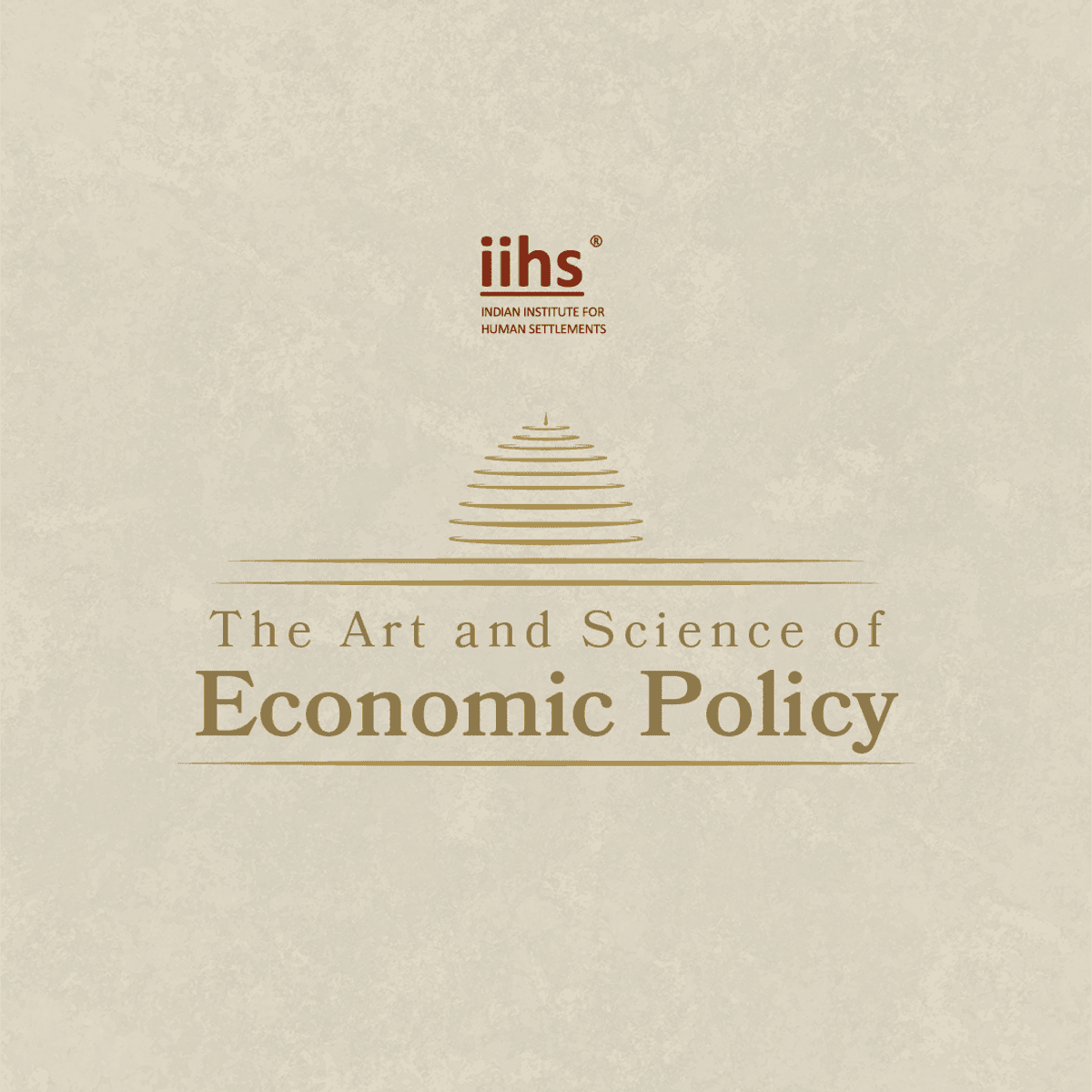
Economic policy affects every citizen. And economic policymaking is best done as a collaborative process with a wide range of stakeholders. This course brings an understanding of the relevance and impacts of economic policymaking in everyday life, and the ways for citizens to be involved in shaping economic policy, in an accessible and interesting manner. Taught by Dr. Vijay Kelkar and Dr. Ajay Shah, along with Aromar Revi, Director, IIHS, the course synthesises more than one hundred years of their combined experience as professional economists and public intellectuals.
Read more
Economic policy affects every citizen. And economic policymaking is best done as a collaborative process with a wide range of stakeholders. This course brings an understanding of the relevance and impacts of economic policymaking in everyday life, and the ways for citizens to be involved in shaping economic policy, in an accessible and interesting manner. Taught by Dr. Vijay Kelkar and Dr. Ajay Shah, along with Aromar Revi, Director, IIHS, the course synthesises more than one hundred years of their combined experience as professional economists and public intellectuals.
Economic policy affects every citizen. And economic policymaking is best done as a collaborative process with a wide range of stakeholders. This course brings an understanding of the relevance and impacts of economic policymaking in everyday life, and the ways for citizens to be involved in shaping economic policy, in an accessible and interesting manner. Taught by Dr. Vijay Kelkar and Dr. Ajay Shah, along with Aromar Revi, Director, IIHS, the course synthesises more than one hundred years of their combined experience as professional economists and public intellectuals.
This course can be covered across 5 weeks with 3-5 hours of learning per week. To get the best out of the course, learners are encouraged to view all the video lectures and conversations, go through other learning material, work on all the assignments and assessments, and participate in discussions in a constructive and respectful manner.
By the end of this course, you will be able to:
~ Identify the role of the government in defining and implementing policy
~ Recognise the various objective aspects of policymaking, and appreciate the various softer / people aspects involved
~ Analyse the steps involved in the process of policymaking, and discuss various nuances and challenges in defining and implementing it
Each citizen plays an important role in shaping our Republic. This course enables citizens, public servants and learners to understand the implications of various aspects of governing a Republic.
If you are a student of economics, public policy, law, political science, and/or management, this course will explain the process of economic policy-making and inform you about the complex systems involved in its creation and implementation.
If you are a public servant in Indian Civil Services involved in public finance and economics, this course will help you gain deeper insights into topics and practices surrounding the design of economic public policy. UPSC aspirants will likewise benefit from the insights and by participating in the discussions the course offers.
Employees and leaders in the private sector who will benefit from having a more nuanced understanding of economic policy and development will also find this course very educational and informative.
We look forward to having you on the course!
What's inside
Syllabus
Introduction to The Art and Science of Economic Policy
Welcome to The Art and Science of Economic Policy (TASEP). The goal of this course is to help you understand the why, when, what, and how of economic policymaking. In this module, you will get an overview of what to expect from this course. You will also meet your instructors and have the opportunity to meet your fellow learners. We hope this module helps you familiarise yourself with the course and its contents so you are prepared to learn most effectively from the following set of modules.
Read more
Syllabus
Good to know
Save this course
Activities
Review Macroeconomics concepts
Show steps
Refresh your macroeconomics knowledge to strengthen your foundation for this course.
Browse courses on
Macroeconomics
Show steps
-
Revisit your notes or textbooks from previous economics courses
-
Practice solving problems related to macroeconomic concepts
Read "The Art of Economic Policymaking" by Ajay Shah
Show steps
Gain insights into the practical aspects of economic policymaking from an experienced economist.
Show steps
-
Obtain a copy of the book
-
Read the book carefully and take notes
-
Summarize the key concepts and arguments
Show all two activities
Review Macroeconomics concepts
Show steps
Refresh your macroeconomics knowledge to strengthen your foundation for this course.
Browse courses on
Macroeconomics
Show steps
- Revisit your notes or textbooks from previous economics courses
- Practice solving problems related to macroeconomic concepts
Read "The Art of Economic Policymaking" by Ajay Shah
Show steps
Gain insights into the practical aspects of economic policymaking from an experienced economist.
Show steps
- Obtain a copy of the book
- Read the book carefully and take notes
- Summarize the key concepts and arguments
Career center
Policy Analyst
Public Policy Advisor
Economic Policy Analyst
Economic Consultant
Government Economist
Teacher
Management Consultant
Nonprofit Manager
Journalist
Politician
Public relations manager
Marketing Manager
Financial Analyst
Social Worker
Investment Banker
Reading list
Share
Similar courses
OpenCourser helps millions of learners each year. People visit us to learn workspace skills, ace their exams, and nurture their curiosity.
Our extensive catalog contains over 50,000 courses and twice as many books. Browse by search, by topic, or even by career interests. We'll match you to the right resources quickly.
Find this site helpful? Tell a friend about us.
We're supported by our community of learners. When you purchase or subscribe to courses and programs or purchase books, we may earn a commission from our partners.
Your purchases help us maintain our catalog and keep our servers humming without ads.
Thank you for supporting OpenCourser.



